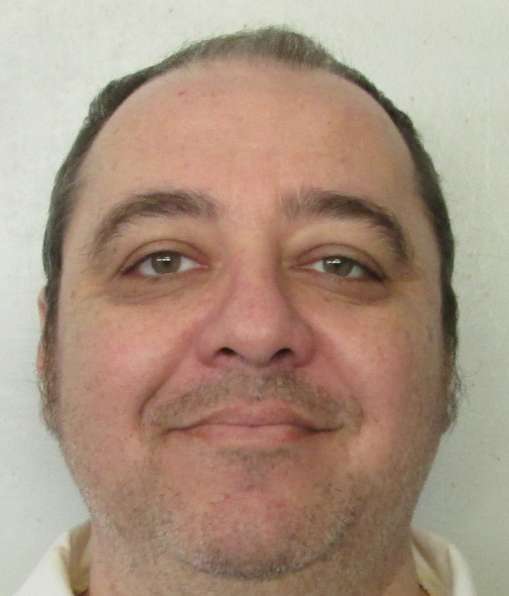Alabama execution set in murder-for-hire of preacher's wife
Alabama is preparing to execute a man convicted in the 1988 murder-for-hire slaying of a preacher’s wife

Your support helps us to tell the story
From reproductive rights to climate change to Big Tech, The Independent is on the ground when the story is developing. Whether it's investigating the financials of Elon Musk's pro-Trump PAC or producing our latest documentary, 'The A Word', which shines a light on the American women fighting for reproductive rights, we know how important it is to parse out the facts from the messaging.
At such a critical moment in US history, we need reporters on the ground. Your donation allows us to keep sending journalists to speak to both sides of the story.
The Independent is trusted by Americans across the entire political spectrum. And unlike many other quality news outlets, we choose not to lock Americans out of our reporting and analysis with paywalls. We believe quality journalism should be available to everyone, paid for by those who can afford it.
Your support makes all the difference.Alabama is preparing to execute a man convicted in the 1988 murder-for-hire slaying of a preacher’s wife, even though a jury recommended he receive life imprisonment instead of a death sentence.
Kenneth Eugene Smith, 57, is scheduled to receive a lethal injection at a south Alabama prison on Thursday evening. Prosecutors said Smith was one of two men who were each paid $1,000 to kill Elizabeth Sennett on behalf of her husband, who was deeply in debt and wanted to collect on insurance.
Elizabeth Sennett was found dead on March 18, 1988, in the couple’s home on Coon Dog Cemetery Road in Alabama's Colbert County. The coroner testified that the 45-year-old woman had been stabbed eight times in the chest and once on each side of the neck. Her husband, Charles Sennett Sr, who was the pastor of the Westside Church of Christ in Sheffield, killed himself one week after his wife's death when the murder investigation started to focus on him as a suspect, according to court documents.
Smith’s final appeals focused on the state's difficulties with intravenous lines at the last two scheduled lethal injections. One execution was carried out after a delay, and the other was called off as the state faced a midnight deadline to get the execution underway. Smith's attorneys also raised the issue that judges are no longer allowed to sentence an inmate to death if a jury recommends a life sentence.
John Forrest Parker, the other man convicted in the slaying, was executed in 2010. “I’m sorry. I don’t ever expect you to forgive me. I really am sorry,” Parker said to the victim’s sons before he was put to death.
According to appellate court documents, Smith told police in a statement that it was, “agreed for John and I to do the murder” but that he just took items from the house to make it look like a burglary. Smith’s defense at trial said he agreed to beat up Elizabeth Sennett but that he did not intend to kill her, according to court documents.
The U.S. Supreme Court on Wednesday denied Smith's request to review the constitutionality of his death sentence.
Smith was initially convicted in 1989, and a jury voted 10-2 to recommend a death sentence, which a judge imposed. His conviction was overturned on appeal in 1992. He was retried and convicted again in 1996. This time, the jury recommended a life sentence by a vote of 11-1, but a judge overrode the jury’s recommendation and sentenced Smith to death.
In 2017, Alabama became the last state to abolish the practice of letting judges override a jury’s sentencing recommendation in death penalty cases, but the change was not retroactive and therefore did not affect death row prisoners like Smith.
The Equal Justice Initiative, an Alabama-based nonprofit that advocates for inmates, said that Smith stands to become the first state prisoner sentenced by judicial override to be executed since the practice was abolished.
Smith filed a lawsuit against the state seeking to block his upcoming execution because of reported problems at recent lethal injections. Smith’s attorneys pointed to a July execution of Joe Nathan James Jr., which an anti-death penalty group claimed was botched. The state disputed those claims. A federal judge dismissed Smith's l awsuit last month, but also cautioned prison officials to strictly follow established protocol when carrying out Thursday's execution plan.
In September, the state called off the scheduled execution of inmate Alan Miller because of difficulty accessing his veins. Miller said in a court filing that prison staff poked him with needles for over an hour and at one point, they left him hanging vertically on a gurney before announcing they were stopping for the night. Prison officials said they stopped because they were facing a midnight deadline to get the execution underway.